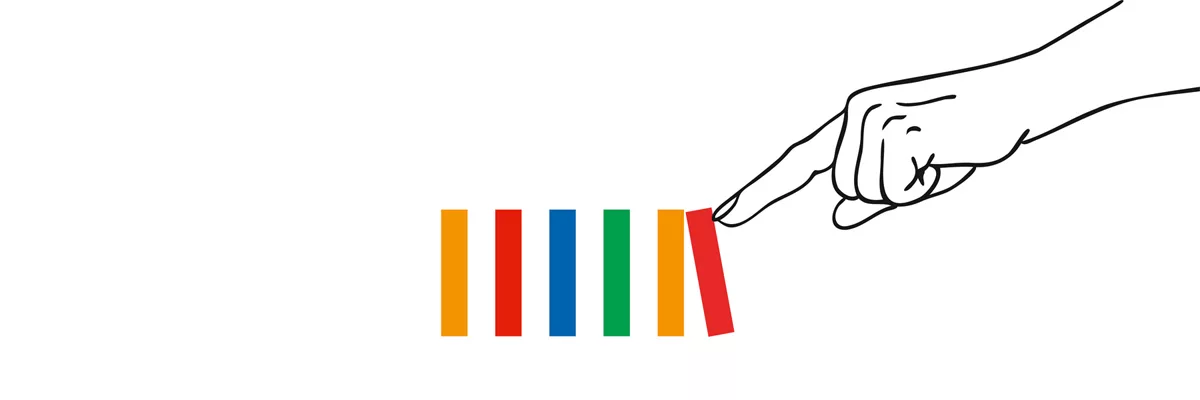The world has never been so polarized or so violent. So, what’s happened? Why are we on the road to “de-civilization” in the West? The analysis is complex since the objective violence indicators are contradictory and the reasons multiple. In this article, I develop the idea of a society that has moved from a relational to a transactional mode, influenced by the materiality of social networks.
Contact IntoTheMinds marketing agency
Statistics on ordinary violence (France, 2000-2021)
- +96.2%: increase in the number of crimes against animals
- +582%: increase in violence, child abuse and dropouts
- +20.9%: increase in outrages against law enforcement officials
- +142.7%: increase in violence against law enforcement officials
- -1,2%: decrease in arson of private property
- +21.6%: increase in fires on public property
- +68.8%: increase in carrying or possession of prohibited weapons
- +212,1% increase in attempted homicides
- -7,5%: decrease in homicides
Homicides are decreasing everywhere … except in the United States
On the scale of violence, homicide is undoubtedly the worst. Contrary to common sentiment, this indicator of violence has been constant for decades. In France, for example, a country where gun ownership is strictly controlled, homicides fell by 7.5% between 2000 and 2021. From a little under 1,000 in 2000, they fell to 878 in 2021.
Ordinary violence, a symptom of decivilization
Decivilization is most keenly felt through daily incivilities. These include aggressive gestures and attitudes in everyday situations. Any exchange can degenerate in a restaurant, store, or supermarket. Even those whose vocation is to help others (pharmacists, medical professionals, teachers) find themselves on the front line of this ordinary violence.
Continuing with the French example, the figures from the various professional organizations are indisputable:
- 7% of French mayorshave resigned
- complaints of violence against elected representatives have risen by 32%in one year
- In hospitals, violence increased by 23% in 2022.
It’s also interesting to note that this feeling of decivilization is nothing new. In an article published in the journal Nature, researchers showed that the perception of moral decline is not new. Nor is this perception exclusive to the “old.” Young people perceive it similarly, and even more so, the longer the observation period.
Let’s look at the facts that have led us, in 2023, to speak of decivilization.
The 3 causes of decivilization
I was greatly influenced by reading “L’archipel français” by sociologist Jérôme Fourquet. In it, he describes a society that is fragmenting. This fragmentation is the driving force behind the decivilization we are witnessing. In a recent interview, he explains the mechanisms involved.
Hétérogénéité culturelle
Following the work of Norbert Elias, the rules of civility and respect are more difficult to apply in a heterogeneous environment. In other words, non-assimilative immigration policies are a breeding ground for incivility. They are a symptom of cultural fragmentation, fed by a lack of educational cement.
Loss of educational reference points
Jérôme Fourquet speaks of the degeneration of “the internalization of self-control mechanisms.” The fault lies with the deficient upbringing of broken families (separation, single parenthood), where values and frustration management are no longer taught. Institutions such as schools and the Church have also taken a back seat in moral education. Without these frameworks, some young people grow up not knowing how to deal with their frustrations (see my opinion on the role of social networks below).
Language skills
Jérôme Fourquet’s final argument is more unexpected but just as relevant. Poor language skills prevent people from verbalizing their frustrations. As a result, frustrations are more easily expressed through violence.
To these 3 well-established causes, I would add a fourth: social networks.
Facebook, the first social network, was born of the desire to connect individuals. The social networks of 2023 are now all about comparing people with each other.
The role of social networks: from relational society to transactional society
Social networks have brought instantaneous information. That’s about the only positive thing I see in them. For the rest, they’ve been a nuisance. Not only have they enabled the creation of echo chambers reinforcing the polarization of opinions, but their recommendation algorithms also lead to the fragmentation of our ability to concentrate and our attention. For example, a recent survey shows over 50% of TikTok users consider videos longer than one minute “stressful.”
Social networks are directly responsible for the isolation of individuals who see in the continuous thread of their recommendations a way of freeing themselves from the physical relationships that are the crucible of any society. A Californian senator made no mistake when he tried to ban these infinite recommendations.
Facebook, the first social network, was born of the desire to connect individuals. The social networks of 2023 now aim only to compare them with each other. This comparison mechanism slowly erases the relational aspect to make way for a transactional mechanic.
By promoting materiality, social networks lead individuals to compare themselves and develop feelings of envy and jealousy. Without going as far as the suicides of teenagers complexed by the images they see on social networks; we need to understand the impact on consumer society. For example, the recent explosion in the luxury watch market is directly linked to creating a speculative bubble on Instagram. YouTube has also seen an explosion in videos of luxury watch dealers showing off their daily activities.
This constant comparison mechanism can only lead to frustration, jealousy… and violence. For those who have little, how can they cope with the frustrations generated by the exposure of objects and brands featured on social networks? During the recent riots in France, the rioters made no mistake. It was with “brands” that they came out of looted stores. Sporting goods stores were the 2nd most looted retailer.
In conclusion
Decivilization is not an instant phenomenon. It is a slow evolution over several generations and is influenced by cultural, socioeconomic, and technological factors.
We’re living in a time when a whole section of the population has lost its bearings. Left by the wayside but exposed to the wealth of the better-off, they are developing a resentment expressed at the ballot box (left and right-wing populism) and in daily violence. One of the driving forces behind these frustrations is social networking. Everyone has access to it, wastes time on it, and can see the wealth (simulated or real) flaunted by people needing attention. Unfortunately, it’s human nature to be attracted by sensationalism. And the reward mechanism of social networks (likes) encourages the race for sensationalism. It’s only natural that these frustrations and the violence they generate should be self-perpetuating.
Posted in Research.



